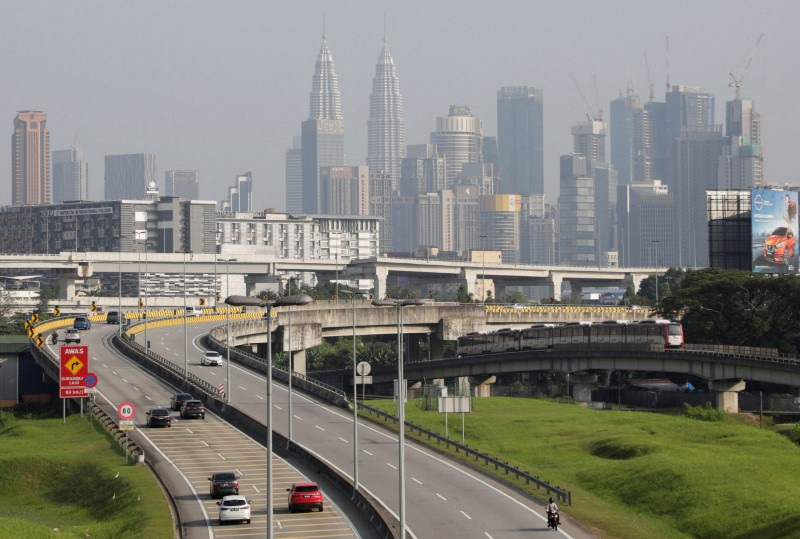KUALA LUMPUR (Reuters) – Malaysia’s economy grew 5.9% in the second quarter from a year earlier, surpassing market expectations, the government and central bank said on Friday.
The growth in the April-to-June period compared with annual growth of 4.2% in the first quarter.
It was also above the 5.8% forecast in a Reuters poll and advance estimate released by the government last month.
Growth in the quarter was driven by stronger household spending, positive labour market conditions, and a pick-up in exports and investment activities, Bank Negara Malaysia (BNM) and the Statistics Department said at a joint press conference.
Full-year growth was now expected to be at the upper end of the central bank’s forecast of 4%-5% growth in 2024, BNM Governor Abdul Rasheed Ghaffour said.
“Household spending will remain the anchor of growth for the rest of this year, with continued expansion in employment and income as well as larger policy support and … strong investment activities,” he said.
The economy expanded 3.7% in 2023, a sharp drop from a 22-year high of 8.7% in 2022.
Malaysia’s exports rose an annual 9.1% in April and 7.3% in May, respectively, before moderating to 1.7% in June. Government data showed exports grew 3.9% in the first half of 2024.
The ringgit currency has recovered since hitting a 26-year-low against the U.S. dollar in February, and has now gained 3.3% so far this year. This was due in part to growing expectations of U.S. policy rate cuts, which has alleviated pressure on regional currencies, BNM said.
Last month, the central bank held its key interest rate steady at 3.00%. It said on Friday that inflation would remain manageable even as it trended higher following diesel subsidy cuts in June.
Headline and core inflation averaged 1.8% in the first half of 2024, BNM said. It projects headline inflation will range between 2% and 3.5% for the year.

